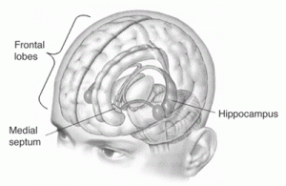Jet lag slows hamster brains
Study suggests chronic jet lag could affect human brains too
Share this:
- Share via email (Opens in new window) Email
- Click to share on Facebook (Opens in new window) Facebook
- Click to share on X (Opens in new window) X
- Click to share on Pinterest (Opens in new window) Pinterest
- Click to share on Reddit (Opens in new window) Reddit
- Share to Google Classroom (Opens in new window) Google Classroom
- Click to print (Opens in new window) Print
When a person travels quickly over long distances, the place may not be the only change. When her bodily rhythms get thrown off, she suffers from jet lag — it’s hard to sleep and eat at the right times in the new location. Humans and all living creatures have an internal biological clock that tells them when to sleep, and when to be awake. Jet lag happens because this internal clock takes a while to match the day and night schedule of a new place.

The researchers didn’t test just one bout of jet lag — they wanted to know how chronic jet lag would affect the brain and thinking behavior of the animals. Something that’s chronic happens again and again over a long period of time. Previous studies have shown that people with work schedules that change their sleep patterns over and over face higher risks of heart disease, cancer and diabetes. Another, earlier study found a connection between cigarette smoking and people whose daily schedules don’t follow their internal clocks — a situation that often leaves them tired.
In the new study, the scientists concluded that chronic jet lag has serious side effects, including stupidity.
First, the scientists moved the hamsters’ schedules forward by six hours. People who travel from the U.S. East Coast to continental Europe experience the same shift, since the two regions are six hours apart.
After three days, the scientists did it again — they shifted the hamsters’ schedules forward by another six hours. Three days after that, they did it again; and then again three days later. For a full month, the scientists jolted the hamster routines every three days.
“It would be like a flight from New York to Paris every three days,” Erin Gibson told Science News. Gibson worked on the new hamster study, which was presented at a meeting of neuroscientists in San Diego on November 15.
During the study, the hamsters slept the same amount every day that they did before the study. However, their sleep patterns had a hard time keeping up with the changing schedule. (People face this trouble, too, when they find themselves wide awake in the middle of the night after traveling a long way.)
Gibson is a graduate student in neuroscience at the University of California, Berkeley. She and her colleagues studied the brains of these animals to understand how jet leg affects thought processes.
Specifically, Gibson’s team wanted to know how jet lag would affect the production of neurons, or nerve cells. Neurons are important cells in the brain. People are born with many of the neurons they’ll have their whole lives. But these cells also continue to be produced by the hippocampus, a part of the brain that helps people store and sort memories, and can move to other parts of the brain.
The hamsters with jet lag produced only about half as many neurons as before. Plus, the hamsters had trouble with basic learning exercises.
The animals’ thinking problems didn’t go away when the experiment was over. A month after they resumed living on a normal schedule, the hamsters still had trouble with basic mental tasks, such as learning and memory.
That means jet lag “is having a long-term effect on learning and memory,” Gibson told Science News.
The researchers don’t know how jet lag is causing these problems, so more research is needed.






